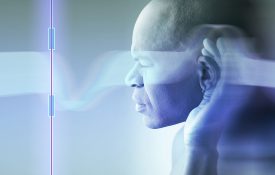-

APS Janet Taylor Spence Award for Transformative Early Career Contributions
The neural mechanisms for self-control, the dysfunctional side of positive emotions, and the health consequences of stigmatization are among the bodies of work being pursued by this year’s winners of the Janet Taylor Spence Award for Transformative Early Career Contributions. Visit Page
-
Attention, Students: Put Your Laptops Away
NPR: As laptops become smaller and more ubiquitous, and with the advent of tablets, the idea of taking notes by hand just seems old-fashioned to many students today. Typing your notes is faster — which Visit Page
-
Can Handwriting Make You Smarter?
The Wall Street Journal: Laptops and organizer apps make pen and paper seem antique, but handwriting appears to focus classroom attention and boost learning in a way that typing notes on a keyboard does not Visit Page
-
Teaching Current Directions in Psychological Science
Aimed at integrating cutting-edge psychological science into the classroom, Teaching Current Directions in Psychological Science offers advice and how-to guidance about teaching a particular area of research or topic in psychological science that has been Visit Page
-
New Research From Psychological Science
Read about the latest research published in Psychological Science: To Live Among Like-Minded Others: Exploring the Links Between Person-City Personality Fit and Self-Esteem Wiebke Bleidorn, Felix Schönbrodt, Jochen E. Gebauer, Peter J. Rentfrow, Jeff Potter, and Visit Page
-

Hearing With Your Ears, Listening With Your Brain
A new field of research called cognitive hearing science holds particular significance for people with hearing impairments, whose inner ears don’t capture complete auditory information for the brain to process. Visit Page

